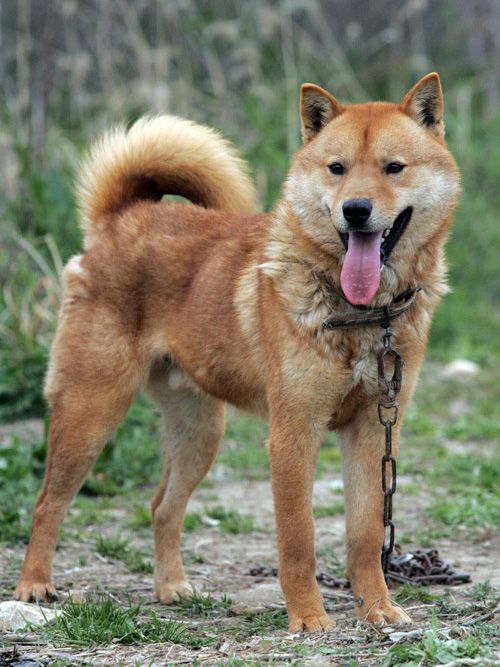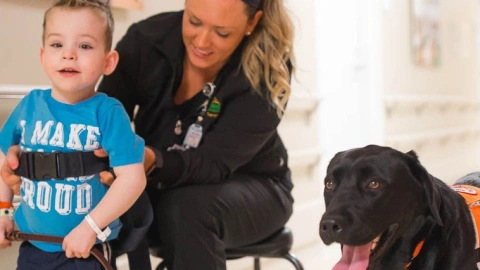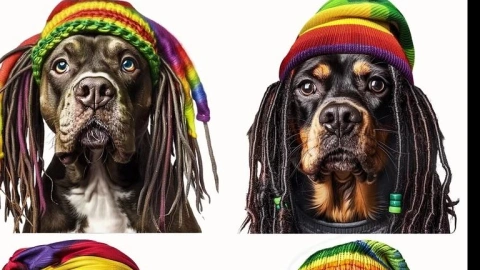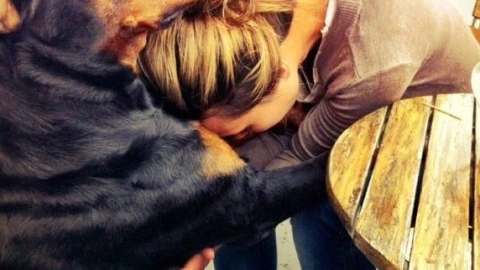Dog / Detail
A Canine Kaleidoscope: The History, Significance, and Future of Dogs in Korea
Jonathan Bennet | 25 October 2024 | 18:10
Dogs have played a multifaceted role in Korean society for centuries, deeply intertwined with the nation's history, culture, and spirituality. From revered companions to hardworking laborers, these four-legged friends have left an indelible mark on the Korean landscape.

The earliest archaeological evidence of dogs in Korea dates back to the Neolithic period, around 7,000 years ago. These ancient canines likely served as hunting companions and protectors for early human settlements. Over time, dogs evolved into an integral part of Korean life, appearing in various folklore, myths, and religious practices.

In traditional Korean culture, dogs were often associated with loyalty, friendship, and protection. They were frequently depicted in art and literature, symbolizing virtues such as courage, perseverance, and vigilance. Dogs were also believed to possess spiritual powers and were sometimes used in shamanistic rituals to ward off evil spirits.
The Significance of Dogs in Korean Culture
Dogs continue to hold a special place in Korean culture today. They are often seen as members of the family, cherished for their companionship and loyalty. The Korean love for dogs is evident in the popularity of dog-themed cafes, dog parks, and dog-friendly events.

Working Dogs in Korea
Dogs have played a vital role in the Korean economy for centuries, serving as working animals in various industries. One of the most notable examples is the use of dogs for herding livestock, particularly cattle and sheep. These herding dogs, often belonging to breeds like the Korean Jindo or the Korean Mastiff, were essential for managing large herds in rural areas.
In recent years, dogs have also found employment in specialized fields such as search and rescue, law enforcement, and drug detection. These working dogs undergo rigorous training to develop the skills and abilities necessary for their tasks.
The Future of Dogs in Korea
As Korean society continues to evolve, so too does the relationship between humans and dogs. While traditional values and customs persist, there is also a growing awareness of animal welfare issues.

The future of dogs in Korea looks bright. With ongoing advancements in veterinary care, training methods, and breeding practices, these beloved companions are poised to play an even more significant role in the lives of Koreans.
As long as humans continue to treat dogs with respect and compassion, these remarkable creatures will undoubtedly remain an integral part of Korean culture for generations to come.
Related
-

The Healing Power of Dogs: How Canine Therapy is Revolutionizing Mental Health and Boosting Positive Energy in Humans
Dog14 November 2024
-

A Pawsitive History: Dogs of Nuremberg
Dog09 November 2024
-

The Role of Oxytocin in the Human-Dog Bond: The Science Behind Our Deep Connection
Dog06 November 2024
-

Beyond the Beach: Jamaica's Dog Lovers
Dog29 October 2024
-

A Dog's Delights: Homemade Snacks for Our Furry Babies, Recipes Included!
Dog29 October 2024
-

A Dog's Disorientation: Understanding Your Dogs' Wanderlust
Dog29 October 2024
Popular
-

-

A Pawsitive History: Dogs of Nuremberg
09 November 2024 -

-

Beyond the Beach: Jamaica's Dog Lovers
29 October 2024 -
